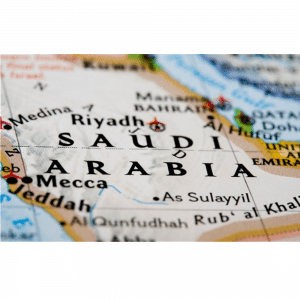My interest in Saudi Arabia started in 1979 when I did my first (and last) business development project there. What I found then was a country with lots of money but not much else. According to the book, Blood and Oil by Bradley Hope and Justin Scheck, that seems to still be the case.
Life in Denmark and Saudi Arabia may represent two extremes.
We practically don’t share any values, institutions and political observations. Yes, we do have a royal family in Denmark, but they wield no power. The current head of state is the Queen (a woman!). Her family doesn’t breed tons of children all to be fed by the government’s coffers. They are respected for their deeds and not feared for their positions. You don’t get thrown into jail for criticising them, the government or any other political entity. Instead, criticism is considered a key element in the ongoing development of our legislation and institutions.
As an author it probably comes as no surprise that I prefer Denmark to Saudi Arabia. Anytime. And my wife agrees.
The brutal dictator is often the last
Blood and Oil is a well researched and well written book that illustrates just how inefficient, unproductive and unfair an autocratic system is despite having practically all the money in the world to do good for their citizens. Its religious base doesn’t make it any easier. I have a theory that in any autocracy the most brutal person will emerge as the ultimate dictator. This book sustains the theory. Saudi Arabia is on its way to getting the most brutal dictator they have ever had. Maybe then he will be the last.
Mohammed bin Salman (MBS) does understand that Saudi Arabia cannot base its economy on oil forever. For some time, oil will remain a source for substantial income, but unless the proceeds are invested in other activities, that provide jobs and wealth for its growing population, the country will slowly but surely slide into oblivion. It will return to being one of the driest, hottest and most unforgiving countries on the planet. The country is already on this trajectory. Unless something is changed this is where it will ultimately go.
Choose the right role models
To help him define the transition project MBS has turned to the world’s other super rich people and to the global management consulting companies. Do they have a proven track record of making such transitions?
Not exactly. Neither the super rich nor the management consultants have done anything that is even close to what MBS wants. But they are asked to chip in and the fees are attractive.
Could MBS look for inspiration elsewhere?

Yes, he could look to Norway or Alaska, that both have similar situations, but apply very different approaches.
But he doesn’t do that.
And the reasons are very simple.
MBS’s primary objectives are to retain his political power and then his riches. Anything else are means to serve these ends. History has clearly demonstrated that such priorities are not sustainable. Even though he may convince his population that he is working in their best interests, the Saudis themselves will see in the long-term that this is not the case. There will come a day when people will want freedom and choice on issues that an autocracy can only provide by stepping aside. Such aspirations will be supported by economic powers that also benefit from a liberal and democratic market economy. MBS’s current strategy working with the world’s super rich individuals and the top management consulting companies may polish his ego, but it will never build the political institutions and scalable market frameworks required for the transitions ahead.
MBS is on a mission impossible
MBS is on a mission impossible.
This is my prediction and the information provided by Blood and Oil supports it.
Sustainable societies and economies are based on institutions that are transparent, consistent and independent of the individuals that currently run them. They are meritocratic and immune to corruption and nepotism.
Saudi Arabia is exactly the opposite and even though MBS does realise that the current self-service kleptocracy undermines the economy as well as the legitimacy of its political system, the changes he pursues takes the country in the wrong direction. Replacing many small kleptocrats with just one giant one won’t fool anybody and the reliance on individuals rather than institutions will not create scalable economic activity. Massive development and construction projects such as NEOM may appear impressive on paper, but buildings don’t build institutions.
MBS has two massive personal weaknesses. He is impatient and he is thin-skinned. I understand that he is in an awkward situation. Since Saudi Arabia has very weak institutions, no-one can predict which direction the country will take should he lose control. That’s why he enjoys some support from his allies (we know what we have and not what we may get). If MBS wants to go down in history as someone who made a difference, then NEOM is not going to be on his tombstone. He must give Saudi Arabia back to its people and build a society which grows from within and doesn’t require suppression and violence to maintain itself.
He doesn’t understand that and that’s why he will fail.
This article was first posted on the TBK Consult blog.



